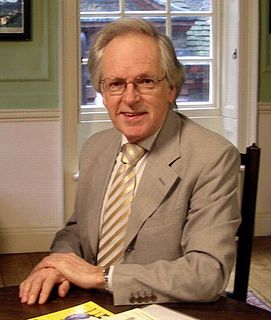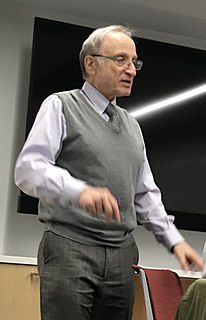A Quote by Nigel Rees
I am only too aware that I am open to Rees's Second Law of Quotation: "However sure you are that you have attributed a quotation correctly, an earlier source will be pointed out to you."
Related Quotes
My readers, who may at first be apt to consider Quotation as downright pedantry, will be surprised when I assure them, that next to the simple imitation of sounds and gestures, Quotation is the most natural and most frequent habitude of human nature. For, Quotation must not be confined to passages adduced out of authors. He who cites the opinion, or remark, or saying of another, whether it has been written or spoken, is certainly one who quotes; and this we shall find to be universally practiced.
The art of quotation requires more delicacy in the practice than those conceive who can see nothing more in a quotation than an extract. Whenever the mind of a writer is saturated with the full inspiration of a great author, a quotation gives completeness to the whole; it seals his feelings with undisputed authority.
I took ethics classes in college, and it always amazes me how they [tabloids] will blatantly say something that I did not say, in quotation marks. The first thing that we learned in ethics is that you better have it right. If you're putting quotation marks around something, it better be exactly what that person said.
There's a famous quotation from the time the Buddha learned of the deaths of two of his greatest disciples: "It's as if the sun and the moon have left the sky." From that quotation, I would guess that while the Buddha loved all beings everywhere, with no exclusion, he also had relationships that were special to him, and he felt their loss.
The Open Source theorem says that if you give away source code, innovation will occur. Certainly, Unix was done this way... However, the corollary states that the innovation will occur elsewhere. No matter how many people you hire. So the only way to get close to the state of the art is to give the people who are going to be doing the innovative things the means to do it. That's why we had built-in source code with Unix. Open source is tapping the energy that's out there.
I am aware that I am very old now; but I am also aware that I have never been so young as I am now, in spirit, since I was fourteen and entertained Jim Wolf with the wasps. I am only able to perceive that I am old by a mental process; I am altogether unable to feel old in spirit. It is a pity, too, for my lapses from gravity must surely often be a reproach to me. When I am in the company of very young people I always feel that I am one of them, and they probably privately resent it.


































